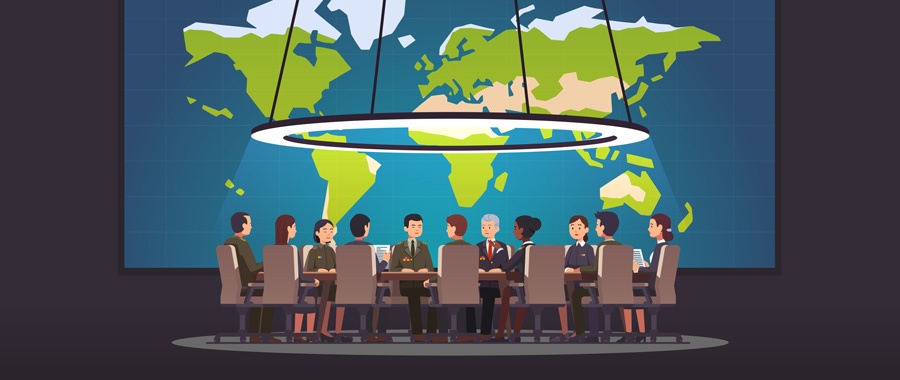In the landscape of human experience, the concept of “enemy” often emerges as a formidable specter, casting long shadows over the interplay of human relationships. To navigate this intricate web, one must ponder: who truly defines our enemies? The Bahá’í teachings provide profound insights into this question, encouraging individuals to reconsider preconceived notions and embrace a vision rooted in unity and compassion.
At first glance, defining an enemy may seem like a straightforward endeavor, often influenced by personal grievances and historical narratives. However, the Bahá’í perspective advocates for a deeper examination of the underlying causes of conflict. Embracing the metaphor of a garden, it becomes apparent that just as weeds may threaten to overrun cultivated plants, misunderstandings and prejudices can distort human interactions. Thus, the Bahá’í teachings invite us to discern the true nature of our adversaries—not as malevolent beings but as fellow human beings ensnared in circumstances that breed animosity.
Moreover, the teachings emphasize that the qualities we attribute to our so-called enemies are often projections of our fears and insecurities. In a world laden with division, the notion of an enemy can serve as a psychological crutch, providing a misguided sense of superiority. This unsettling dynamic is poignantly articulated within Bahá’í philosophy: our perception of others reveals as much about us as it does about them. Embracing this insight allows for a transformational shift, wherein the lens through which we view others becomes imbued with empathy and understanding, fostering a more inclusive world.
Historical events serve as testament to this wisdom. Wars and conflicts have frequently arisen from a narrow understanding of “the other.” Nations once bonded in shared aspirations have found themselves at odds due to misinterpretations and stereotypical frameworks. The Bahá’í teachings implore us to dismantle these constructs, advocating for dialogue and reconciliation as means to transcend divisions. Imagine, then, a tapestry woven with threads of diverse perspectives, each unique yet harmonious, thus illustrating that humanity’s strength lies in its collective differences rather than in the chasms that divide.
Examining the notion of enmity through the prism of relationship-building is paramount. The teachings remind us that enmity is often rooted in fear—fear of the unknown, fear of loss, and fear of vulnerability. These fears can be debilitating, creating self-imposed barriers that hinder genuine connection. As one engages with individuals who, at first glance, may appear as adversaries, it becomes essential to cultivate an atmosphere of trust and goodwill. Here, the Bahá’í principle of consultation plays a pivotal role, transforming adversarial encounters into opportunities for collaborative problem-solving. Thus, what once appeared as impenetrable dichotomies may evolve into productive dialogues, forging pathways toward mutual understanding.
Furthermore, the call to redefine our enemies is inherently a call to redefine ourselves. In this process, the emphasis shifts from external conflict to internal resolution—an introspective journey where self-examination enables growth. The concept of the “inner foe” is prevalent in many spiritual traditions, yet the Bahá’í teachings urge individuals to confront these inner battles without succumbing to despair. Instead, they advocate employing one’s spiritual attributes to transcend negativity, aligning oneself with higher objectives that reflect unity and love. In doing so, one not only dismantles personal enmity but also contributes to the creation of a more compassionate global society.
Educating oneself about the diverse cultures, histories, and beliefs that populate the world further serves as an antidote to enmity. Knowledge acts as a bridge, facilitating connections that might otherwise remain unexplored. The Bahá’í teachings extol the virtues of education and comprehension, positing them as vital tools in fostering relationships across divides. Within this context, diligence in learning about others’ experiences cultivates mutual respect, which, in turn, counteracts enmity before it can fester.
In contemplating the question of who defines our enemies, it becomes evident that the choice ultimately resides within each individual. The Bahá’í teachings compellingly illustrate that shifting the narrative from hostility to empathy requires conscious effort. It is a call to abandon dichotomous thinking, recognizing the shared humanity that binds us all. This underlying thread of interconnectedness can reshape how we interact with others, transforming potential adversarial encounters into opportunities for profound and enriching relationships.
In conclusion, the call to redefine our enemies transcends simple reclassification; it is an invitation to transform our world through the lens of unity and understanding. It challenges individuals to move from a mindset entrenched in division toward one that embraces the complexity of human existence. By fostering empathy, cultivating knowledge, and uplifting dialogues rooted in love, the Bahá’í teachings provide a holistic framework through which enmity can unravel, revealing the unyielding threads of our shared humanity. As we each embark on this journey of reflection and growth, let us redefine our narratives, creating a world where enmity dissolves in the light of understanding.
